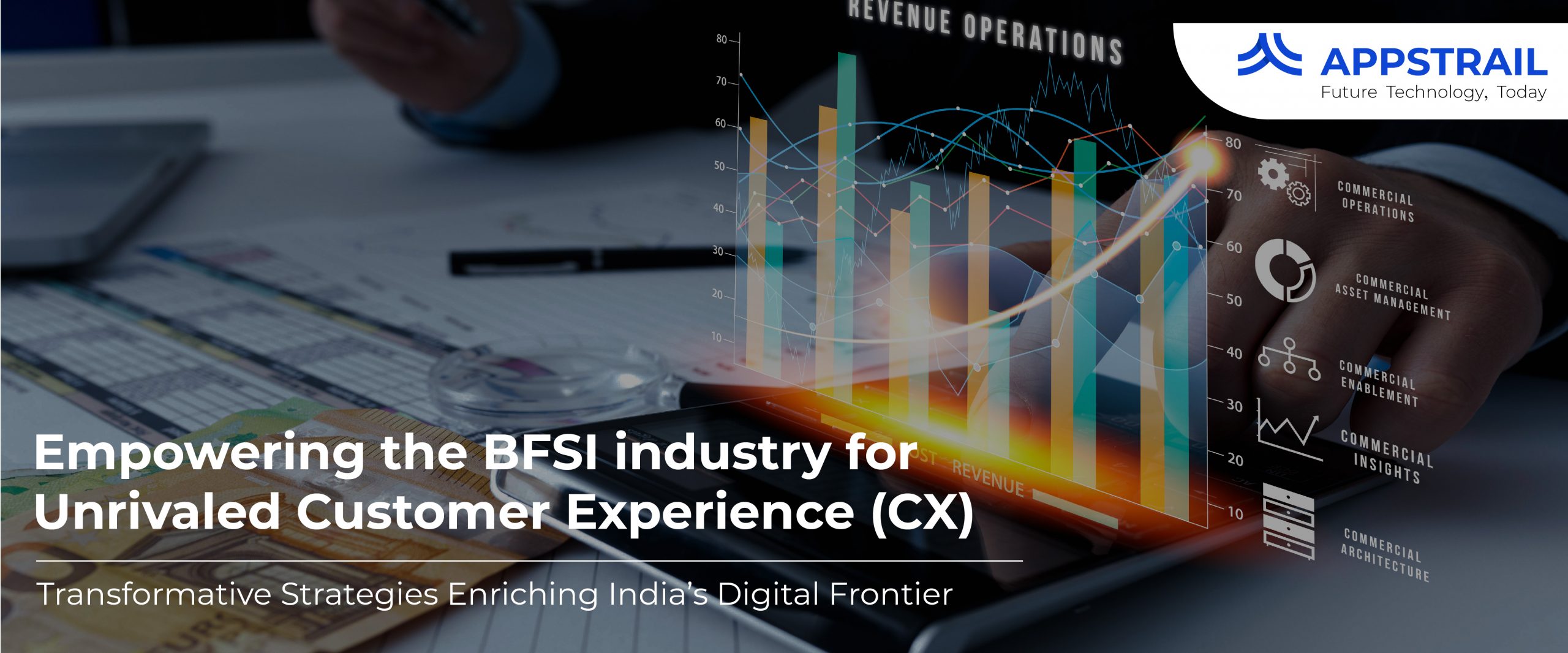From transactions to insights: Why the BFSI sector needs to look at cloud and analytics
The key to a successful business is knowledge. For the Banking, Financial Service and Insurance (BFSI) sector, data collected at multiple customer touchpoints along the customer lifecycle, provides that knowledge. Be it transaction details, helpline data, log data, emails, sponsorship data, loan data, customer audio and video recordings, emails and social media, data is available amply. However, analyzing all the collected data and extracting actionable insights is the actual task. Cloud technology can be an efficient assistant in executing such assignments.
Cloud computing, with flexible and scalable infrastructure, plays a key role in leveraging newer technologies like artificial intelligence (AI), blockchain, and robotic process automation (RPA). For the BFSI sector in India, cloud technology can help future-proof businesses, improve products and services, speed up innovation cycles and ensure an enhanced customer experience. Plus, it has proven to be cost-effective for banks that use a single cloud system, as they no longer have to maintain on-premise systems like hardware, software and IT.
At AWS re:Invent 2022, Amazon Web Services (AWS) shared that India was poised to be the biggest market for cloud computing in terms of fintech and financial services. AWS had also mentioned that since 2017, it has trained over 5 million people across the APAC region. Of that count, at least 3 million were in India. Andrew Sklar, Director of AWS Training and Certification – Sales and Delivery in Asia Pacific and Japan (APJ) had mentioned, “India continues to be a major leader in digital economy. Several companies in the financial services are using our services and they want to train their employees in cloud computing.”
Yet, there are challenges the sector still faces, the biggest among them being prior investments in expanding legacy systems. Hence, the sector is resistant to investing in cloud technology and migrating from legacy systems as that would include restructuring and additional effort. However, the benefits of using cloud and analytics platforms must be considered.
Connected systems
 With cloud systems in place, BFSI firms can go through legacy infrastructures to churn out huge amounts of data to draw consumer and market insights, from both within and outside the organization. Cloud systems can help store data and scale easily, as it is not restrictive in terms of space availability. The cloud can be updated with information in real-time from different departments and additional storage is available without the hassle of physical infrastructure.
With cloud systems in place, BFSI firms can go through legacy infrastructures to churn out huge amounts of data to draw consumer and market insights, from both within and outside the organization. Cloud systems can help store data and scale easily, as it is not restrictive in terms of space availability. The cloud can be updated with information in real-time from different departments and additional storage is available without the hassle of physical infrastructure.
Machine learning
 Through cloud-based machine learning services, firms can enhance transaction monitoring and model development. They can enable real-time monitoring, like the credit risk of customers, while also simplifying the process, like speeding up credit approvals. Overall, they can improve efficiency and interaction in their products and services.
Through cloud-based machine learning services, firms can enhance transaction monitoring and model development. They can enable real-time monitoring, like the credit risk of customers, while also simplifying the process, like speeding up credit approvals. Overall, they can improve efficiency and interaction in their products and services.
Blockchain
 The costs related to financial transactions are considerably reduced through blockchain networks, as they reduce overhead and transaction costs. So, when blockchain is combined with the acloud, it simplifies the creation and management of scalable and open-source networks for financial assets. This proves useful for multiple financial tasks like clearing, settlement, trade finance, and cross border payments.
The costs related to financial transactions are considerably reduced through blockchain networks, as they reduce overhead and transaction costs. So, when blockchain is combined with the acloud, it simplifies the creation and management of scalable and open-source networks for financial assets. This proves useful for multiple financial tasks like clearing, settlement, trade finance, and cross border payments.
Reporting and monitoring
 The main objective behind collecting and analyzing data is to utilize it to improve products, services, and other offerings. Cloud technology and analytics can help organizations generate user-friendly and customizable reports that provide in-depth understanding of problems and also offer possible solutions. It ensures comprehensive financial, customer-centric, and regulatory reporting.
The main objective behind collecting and analyzing data is to utilize it to improve products, services, and other offerings. Cloud technology and analytics can help organizations generate user-friendly and customizable reports that provide in-depth understanding of problems and also offer possible solutions. It ensures comprehensive financial, customer-centric, and regulatory reporting.
Data accessibility
 With a hybrid cloud system, BFSI companies gain data mobility and data accessibility. They can transfer sensitive data between on-premises and public cloud environments as and when needed. People from various departments can use, share, visualize and access data easily, from multiple locations and devices. That certainly helps improve decision making in real-time.
With a hybrid cloud system, BFSI companies gain data mobility and data accessibility. They can transfer sensitive data between on-premises and public cloud environments as and when needed. People from various departments can use, share, visualize and access data easily, from multiple locations and devices. That certainly helps improve decision making in real-time.
By embracing cloud analytics, BFSI organizations can transform their operations, enhance customer experience, drive innovation, mitigate risks, and stay competitive and relevant. Elevate your business with cloud analytics today with Appstrail and harness the power of knowledge-driven insights for enhanced customer experiences, streamlined operations, and unparalleled innovation! Transform your future with cloud analytics now!





